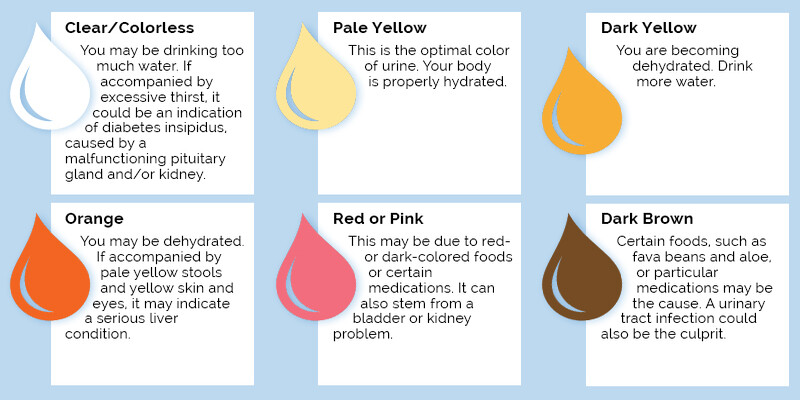A contradiction regarding running frequently confounds a number of people. The positive health effects of running are widely acknowledged, including the promotion of cardiovascular fitness and the cultivation of a more positive mindset. Despite this, the intriguing topic of whether jogging could result in weight gain persists. This article will analyze this captivating enigma. Running provides numerous health benefits, encompassing enhancements to physical fitness, mental health, and cardiovascular health. Despite the aforementioned advantages, the relationship between running and weight may be complex; we shall scrutinize it in depth to gain further understanding.

Understanding Weight Gain Running Dynamics
A scientific perspective is essential in order to fully grasp the complex correlation between running and body mass. Energy expenditure serves as the foundational principle upon which all other conceptions are built. Caffeine is expended during running and functions as the body's energy source. Energy consumption is affected by variables, including the characteristics of the terrain, velocity, and distance traveled.
Metabolic Rates and Caloric Burn
The occurrence of weight gain during running is primarily determined by metabolic rates. The daily caloric expenditure is determined by an individual's metabolism. The effects of running on the body's metabolic rate may differ depending on the activity's duration and intensity, which could result in divergent consequences.
For shorter and more strenuous treks, the metabolic rate may increase substantially during the exercise. Nonetheless, it is crucial to note that once a cycle concludes, the velocity generally reverts back to its initial state. On the contrary, lengthier and moderately strenuous runs might not induce a substantial surge in metabolic rate while being performed, but they could potentially result in increased calorie expenditure following the activity.
Running's impact on metabolic rate illustrates the intricate nature of its influence on body weight. Although exercise can induce a temporary reduction in caloric intake, the subsequent changes in metabolism are not always foreseeable and may not result in significant weight loss.
Running's Appetite-Stimulating Effects
The paradox of weight gain is further complicated by the fact that physical activity induces a craving for food. Engaging in vigorous physical activity may elicit an appetite-stimulating response, resulting in individuals consuming an excess of calories beyond what they expended throughout their run. Runners who are inexperienced in the sport or who participate in long-distance running are at a heightened risk of encountering this phenomenon.
An increase in physical activity induces a greater expenditure of energy by the body, which ultimately leads to a greater burning of calories. This may consequently result in an increased sensation of appetite, particularly in regard to high-calorie meals. As a result, the calorie-burning benefits of running may be nullified by subsequent excessive food consumption.
To resolve the perplexing question of whether running causes weight gain, it is critical to comprehend the fundamental physiological components that are linked to running. In order to effectively attain one's objectives regarding fitness and weight management, it is critical to sustain a balanced state of mind encompassing exercise and mindful dietary decisions.

How Running Affects Body Composition
Fat Loss vs. Muscle Gain
A considerable number of people frequently seek to reduce their percentage of total body fat through the implementation of jogging as a form of physical exercise. Running, without a doubt, has the potential to facilitate fat loss, particularly when coupled with a nutritionally balanced regimen. When performing aerobic exercises, such as jogging, the body draws upon its fat reserves to supply the extra energy needed to sustain the physical exertion. Ultimately, this may promote the reduction of total body fat.
Nevertheless, this formula is subject to one stipulation: the importance attributed to muscle growth. Jogging is not only an effective means of decreasing abdominal obesity, but it also promotes the development of lower body muscle mass. Consistent running, particularly at an elevated velocity, has the potential to enhance the strength of the quadriceps and leg muscles.
The growth of muscle, by virtue of its increased density and weight, has the potential to counterbalance the weight loss induced by fat loss.
The Role of Running Intensity
The level of adipose tissue reduction and muscle hypertrophy that occurs during running is directly proportional to the runner's physical exertion. Particularly in the lower extremities, sprinting and high-intensity interval training (HIIT) are extremely effective for muscular development. On the contrary, long-distance, low-intensity running may place greater emphasis on fat reduction as opposed to muscle development.
Acknowledge that running exerts diverse influences on body composition across different individuals. The extent to which running promotes muscle growth, fat loss, or a combination of the two is dependent on a number of factors, including genetics, diet, and exercise regimen.
Overall, the complex relationship between fat loss and muscle gain induced by jogging contributes to the complexity of the weight gain issue. Although jogging may potentially aid in fat loss, it can also promote the development of muscle, which could have an effect on your overall body weight. The intensity and duration of running exercises additionally impact the synergy between these two aspects of physical fitness.
Assessing Running's Role in Long-Term Weight Management
Longitudinal Studies on Running and Weight
Longitudinal studies offer the most comprehensive insights into the potential long-term weight management benefits of running. Longitudinal studies have the potential to last for decades, providing researchers with ample opportunity to observe the running patterns of individuals and the resulting variations in body weight.
A longitudinal study investigates in depth the correlation between running and weight gain. They demonstrate that sustained participation in running can almost undoubtedly lead to weight reduction or maintenance over extended time periods. The extent to which individuals experience these effects differs based on a variety of factors, such as their initial body mass, running frequency, and dietary selections.
Lifestyle Factors Influencing Running's Impact on Weight
In terms of weight management, lifestyle factors exert a significantly greater impact than the physical activity of jogging. Incorporating additional forms of physical activity and proficiently managing tension are also essential elements of a comprehensive and health-conscious way of life, in addition to participating in running.
Dietary considerations may substantially impact the weight loss effectiveness of exercising. It is crucial to consume a nutritious and well-balanced diet that promotes both calorie expenditure and recovery in order to reach your weight-loss objectives. Additionally, the frequency and composition of meals may have an effect on the weight-loss effects of exercise. Incorporating a nourishing meal into one's diet both prior to and following a run has the potential to augment the advantageous effects of the activity with respect to burning calories and muscle recovery.
The influence of running on weight is complex due to the participation of numerous lifestyle factors, including stress levels and sleep patterns. The potential advantages of running could be nullified if chronic stress and sleep deprivation interfere with the regulation of hormones and appetite. Moreover, the potential advantages of running for weight loss could be amplified through the implementation of effective sleep and stress management strategies.
Conclusion
The apparent paradox that exists between weight loss and running is complex and multifaceted. Among the indisputable health advantages of running are enhanced cardiovascular fitness and a reduction in body obesity. Conversely, research has demonstrated that it can stimulate the appetite, potentially leading to overindulgence in food. Due to the interdependence of the processes underlying fat loss, muscle gain, and metabolic effects, it is vital to comprehend how they interact. In addition to exercising physically, individuals who wish to lose weight through running must adopt a holistic strategy that includes mindful consumption of food and beverages.







